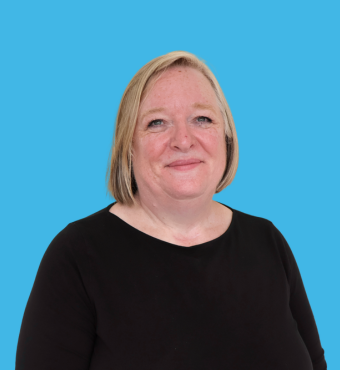
From Diagnosis to Empowerment: Angela’s Journey with Lung Cancer and the LungFit Study
When Angela, a non-smoker from Glasgow, was diagnosed with stage one lung cancer, the news came as a complete shock. She had visited the hospital for chest pain, only to discover she carried a rare DNA mutation known as epidermal growth factor receptor (EGFR), commonly found in non-smokers, particularly in women under 50. Although the cancer was caught early, the emotional and physical impact proved far greater than she had anticipated.
Feeling Forgotten in the System
Angela’s experience highlights a critical gap in the care provided to early-stage lung cancer patients. After undergoing a lobectomy in July of the previous year, she was left without meaningful follow-up support. Although the surgery was expected to fully treat her cancer, Angela was discharged with little guidance on what to expect next. There was no prehabilitation, no support for physical recovery or mental wellbeing, and her follow-up care consisted only of routine scans—often by non-oncology specialists. Physically weakened and emotionally isolated, she struggled to adjust to life after surgery.
Discovering the LungFit Study
Her journey took a positive turn when she attended a patient advocate session at the British Thoracic Oncology Group Conference in Belfast.
She was invited to join the LungFit study after expressing her frustration about the lack of support in her own care. The study is — a digital intervention aimed at improving outcomes for lung cancer patients through an exercise based digital self-management program.
Angela eagerly accepted the opportunity, viewing it as a chance to regain control over her recovery.
Simple Technology, Powerful Impact
With the help of a researcher, the Handheld Health Lung Cancer app was installed on her phone, and she received a fitness watch to monitor her heart rate and activity levels. The app offered personalised exercises tailored to her baseline fitness, allowing her to work out at her own pace and in her own space — whether in the living room, bedroom, or even while on holiday. She used household items like tins of beans as weights, finding the program both accessible and motivating.
She engaged with the app three times a week, appreciating its flexibility and the sense of empowerment it brought. The structured activity not only improved her physical strength but also shifted her mindset, helping her feel more in control of her recovery.
A New Lease on Life
Since incorporating the app into her routine, Angela’s lifestyle has undergone a transformation. Once hesitant to climb stairs or engage in physical activity, she now attends Pilates classes and has even tried line dancing. She became aware of how much upper body strength she had lost post-surgery and was encouraged by the progress she made in rebuilding it. The improvements extended beyond the physical — her breathing, mood, and confidence all saw significant gains.
The mental health benefits were particularly profound. Where she once believed her life was over, she now felt she was truly living again.
Advocacy and Breaking the Stigma
Angela is a vocal advocate for lung cancer awareness and support in Scotland. She has participated in parliamentary sessions, pushing for earlier screening and better resources for patients. Her story challenges the common misconceptions surrounding lung cancer, particularly the stereotype of patients being frail and dependent on oxygen.
She also addresses the stigma faced by non-smoking lung cancer patients. Many, including Angela, have felt a sense of shame or embarrassment, with some women even claiming to have breast cancer instead due to its greater social acceptance. Angela is determined to change that narrative, emphasising that lung cancer can affect anyone.
A Role Model for Future Patients
Reflecting on her experience, Angela wishes she had access to the Handheld Health Lung Cancer app immediately after surgery rather than eight months later. She sees immense potential in the app’s ability to help newly diagnosed patients regain control and rebuild their health from the outset. She believes early-stage patients are often overlooked and stresses the importance of having supportive tools available from the beginning.
Although she hasn’t yet joined other research studies, Angela views her involvement in LungFit as just the start. She now advocates not only for herself but for future generations of patients. She encourages others to participate in research, highlighting the broader impact such involvement can have — not just for themselves, but for their loved ones and the wider community.
Going the Extra Mile
Angela’s dedication to the LungFit study was so strong that she travelled over 400 miles from Glasgow to Bristol on two occasions. The experience gave her renewed hope and a belief that a healthy, fulfilling life was still possible. Through her participation in the study, she hopes to have inspired and helped others on similar journeys.
For Angela, LungFit was more than taking part in a research study— it was a turning point. It helped her rebuild her strength, restore her confidence, and redefine what it means to live with lung cancer.
